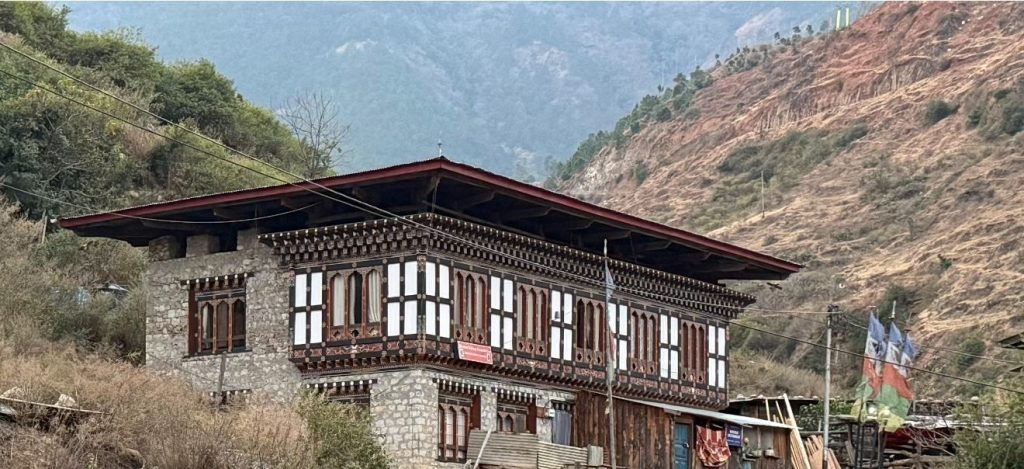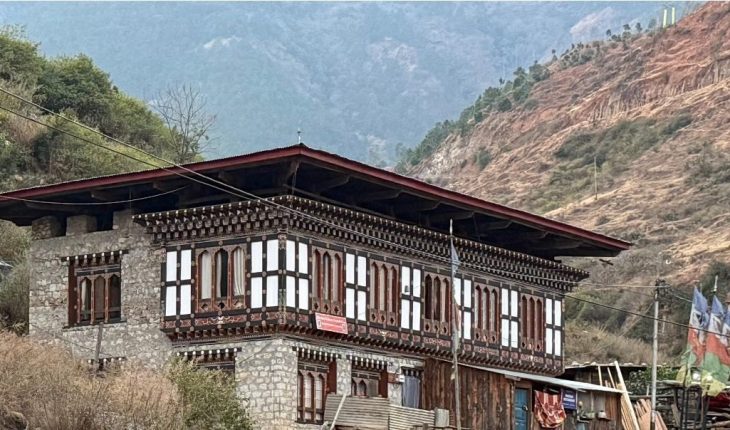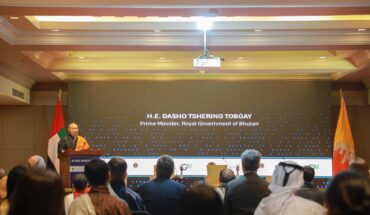
Bhutan Kidney Foundation Eases Rural Dialysis Burden
TIL BDR GHALLEY | Thimphu
For many Bhutanese living with kidney failure, the journey to survival begins long before stepping into a hospital. It starts with the struggle to reach a dialysis centre often hundreds of kilometres away and the uncertainty of where to sleep, what to eat, or how to pay for long hours of journey. And, for rural patients, these are not small inconveniences, they are life-defining barriers.
Amid these challenges, the Bhutan Kidney Foundation (BKF) has quietly built a lifeline, a network of shelters that provide accommodation, food, and emotional support to patients undergoing dialysis or awaiting kidney transplants.
By establishing Guest Houses in Gelephu, Wangdue, and Kolkata. These shelters are lifelines for rural patients who must travel long distances for dialysis, often facing financial struggles, emotional isolation, and lack of support. Beyond medical care, the guest houses provide dignity, hope, and a sense of community essential for patients enduring life altering illnesses.
Namgay, 63, from Bumthang said dialysis was both physically exhausting and emotionally draining. He has stayed at the Wangdue Kidney Shelter for six months with his daughter. Chimi Lhamo, 35 care giver and daughter of Namgay said, “Before he was diagnosed with kidney problems, he had liver issues. Once, he suddenly collapsed, and we were referred to JDWNRH.
“Although a guest house was provided, it was extremely difficult for us. We had no relatives nearby, so we rented a room. Surviving on bare minimum meals and paying rent added even more stress. It felt like the world was collapsing around us.”
Yeshi Dorji, 23, from Mongar, described the anxiety before the guest house, “Before staying here, I stayed with my relatives in Khuruthang, Punakha. “I often could not reach dialysis on time, and financial worries were constant. Being at the guest house lifts a weight off my shoulders. I feel safer and more secure about my health,” Yeshi said.
BKF has been like a second family. They gave me a place to stay, helped with transportation, and most importantly, gave me hope when I felt hopeless.” he said emotionally.
For long-term patients, kidney failure brought disbelief, fear, and heartbreak. Bhakta Bdr Gurung, 64, from Patsherling Gewog in Tsirang, has undergone dialysis for 11 years and lived in the Gelephu Kidney Shelter for five years. He added when he first visited the hospital, the doctor told me he had kidney failure. He said he could not believe it and felt his life was ending.
“Only after multiple confirmations did, I accept reality. Traveling from Patsherling in Tsirang, for dialysis was exhausting. I often felt helpless and alone. I lacked mobility, emotional support, and financial stability. The burden felt unbearable,” he added. Now, the shelter gives us hope as I have a bed, hot meals, and people who understand his struggles. Home has become his guest house, and the guest house has become their home.
Women face additional challenges. Lemo, 40, from Bardo in Zhemgang, said that once she was referred here, she never returned home. She said, “I stayed at the hospital for five years and two more years at the guest house. People began ignoring me, and even my husband left me. I felt abandoned and broken. The guest house is my home now. The kidney patients here are my family. Without it, I could not have survived. I might have given up long ago.”
Purna Bdr Mongar, 52, from Dagana, remembered her diagnosis vividly: “In 2021, I collapsed while working in the fields. Doctors told me my kidneys had failed and I would need dialysis for life. That day, my world ended. I worried more about my children than myself—who would care for them if I could not work? I did not even know what dialysis meant. I thought this was the end for me.”
Kidney shelters provide more than accommodation—they restore dignity, social support, and hope. Many patients now mentor new kidney patients, guiding them through emotional and logistical challenges.
Patients also stressed the need for more decentralized dialysis services. They said if every dzongkhag hospital could provide dialysis, the financial, emotional, and physical burden on rural families would be significantly reduced.
Bhakta Bdr Gurung shared: “No matter what you face, always keep your hope and self-esteem high. This shelter has given me courage to continue living despite everything.” He said Before the guest house, I didn’t know where we would sleep. We stayed in temporary places and sometimes even with strangers. Now, we have a roof over our heads and peace of mind.
Lemo added: “The guest house is my home. It has given me family, care, and the strength to survive. Without it, I could not have endured the challenges of dialysis.”
She said Yes, I feel more hopeful now. Even though the road is difficult, BKF has shown me that I am not walking it alone. “Without BKF, I cannot imagine surviving. We would have been homeless, helpless, and hopeless.” she said. “This shelter does not just give us a safe place to stay; it gives us dignity, hope, and the will to live.” Purna Bdr Gurung added.
The experiences of Namgay, Yeshi, Bhakta, Lemo, and Purna highlight how BKF bridges the gap between rural patients and life-saving dialysis. Before the guest houses, patients faced long journeys, isolation, and financial stress.
Today, BKF provides safe, supportive environments where patients can focus on recovery without fear or worry. The shelters are more than temporary accommodation—they are homes where patients find emotional support, community, and renewed strength.
For many, the shelters offer hope, dignity, and reassurance, proving that no one has to face kidney disease alone. BKF’s Kidney Patients’ Guest Houses remain a vital part of Bhutan’s healthcare system, ensuring rural patients receive timely treatment while living with respect, compassion, and renewed courage.
Chimi Lhamo said the hardest part is watching someone you love suffer and knowing there is little you can do to take away their pain. “It gave us stability. We didn’t have to worry every day about where to sleep or how to afford a room. It allowed me to focus only on my father’s treatment.” Don’t lose hope. There are people and organizations like BKF who will stand by you. You are not alone in this journey.” she added.
For kidney patients, especially those who need regular dialysis or frequent hospital visits, missing a session or not following prescribed regimes can rapidly escalate disease, cause complications, even death. Rural patients often face travel barriers, high lodging or food cost, or lack of local support. By providing shelter near treatment facilities reduce these non-medical but critical barriers.
(This story is produced with support from Bhutan Media Foundation under the CSOs and CBOs Reporting Publication Grant)





